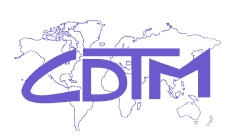| Résumé |
Abstract: “Certification is increasingly becoming necessary for accessing coffee export markets and practicing environmental conservation, especially at this time when many of the farmers in developing countries strive to achieve agricultural transformation. Using data from 400 randomly selected coffee farmers in Tanzania, the study determined the status, constraints, key drivers, and impact of coffee certifications. Descriptive statistics and the endogenous switching regression (ESR) model were used for data analysis. Results indicated that the level of coffee certification is low, being constrained by unawareness and inaccessibility, the prevalence of coffee diseases, failure in realizing price advantages, and certification not being cost effective. Economies of scale, experience, and participation in collective actions are significant factors affecting coffee farmers’ decision to join certification schemes. Additionally, the study rejects the hypothesis of certification to improve household income. However, certification improved awareness and practices of environmental conservation among coffee farmers. It is thus important to embark on awareness creation and make certification services accessible and cost effective to coffee farmers for increased access to niche export markets. Easing transmission of price premiums to coffee farmers will also increase the supply of sustainably grown coffee, improve coffee farmers’ livelihood, and help in the attainment of environmental sustainability goals within the coffee supply chain.”
|
 CDTM de Paris
Centre de ressources sur le commerce équitable
CDTM de Paris
Centre de ressources sur le commerce équitable
